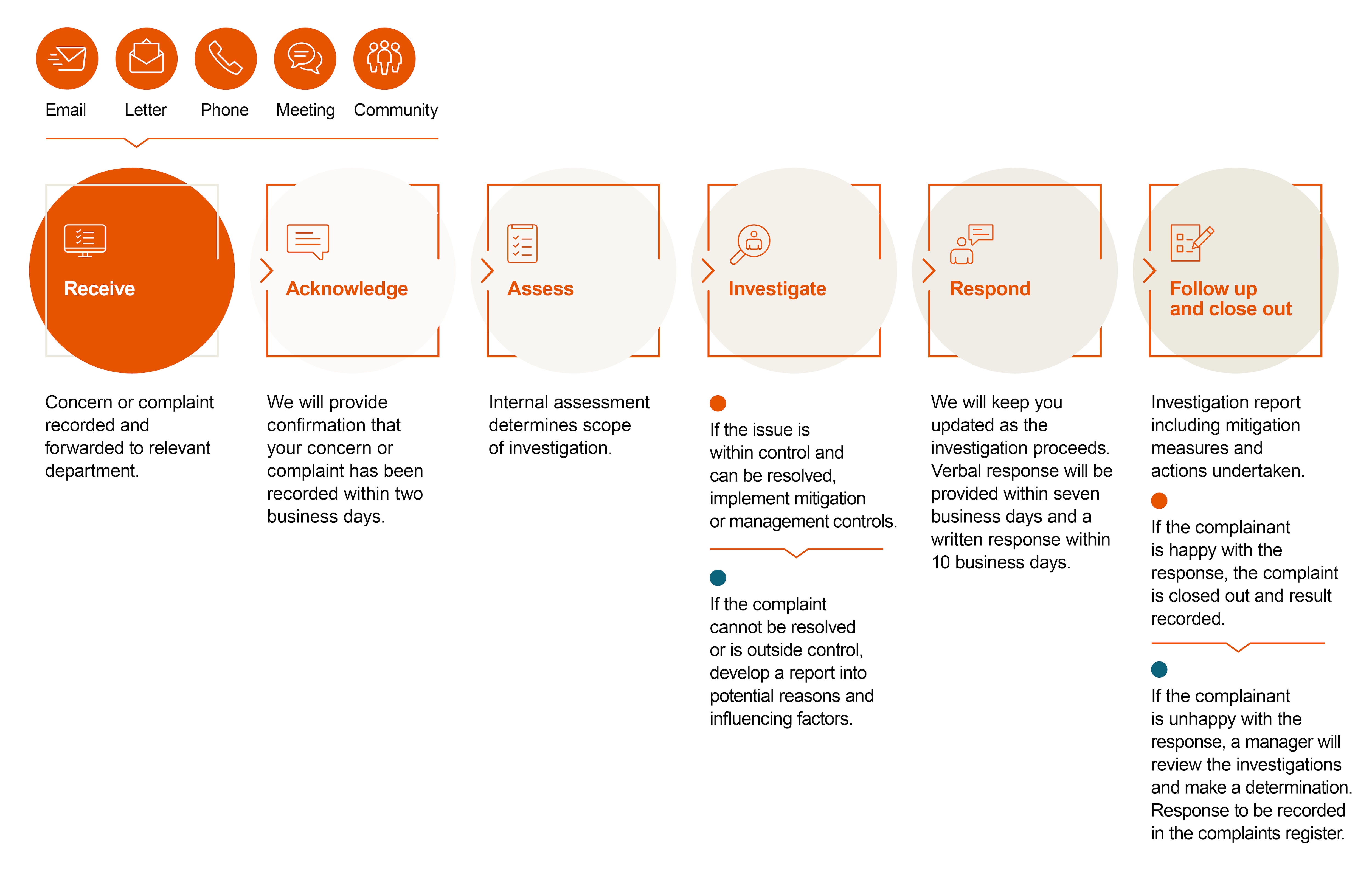Through regular engagement and social research, we seek to understand the expectations, concerns, aspirations and interests of the communities potentially affected by our operated assets and identify their areas of priority. We recognise the significance of two-way dialogue in highlighting concerns and perspectives. A core element of our approach is considering various stakeholder and partner perspectives.
By assessing the social, economic, political, security and environmental factors affecting communities, we aim to identify and monitor emerging social trends, better manage potential social impacts and risks (including reputational risks) associated with our operations and contribute to social value. We work with communities to identify social needs and how we can better use existing resources. We then partner with appropriate organisations to deliver community projects and monitor progress and performance consistently.
We engage regularly with investors, civil society, communities, Indigenous stakeholders, human rights experts and industry associations to enhance our understanding of current social expectations, trends and perceptions relating to human rights and the real or perceived impacts of our activities on communities where we operate. We also engage with other industry participants to understand our collective impact and how to more effectively address it together.
Responding to stakeholder concerns and access to remedy
BHP recognises the nature of our business activities can create impacts on and concerns among communities. All our operated assets are required to have a complaints and grievance mechanism that meets criteria in line with the UN Guiding Principles on Business and Human Rights (Article 31, Effectiveness Criteria for Non-Judicial Grievance Mechanisms). This is aimed at ensuring all mechanisms:
- are scaled to the country context, risks and potential adverse impacts
- address concerns promptly
- use an understandable and transparent process that is culturally appropriate and readily accessible to all segments of the affected communities
- undertake appropriate remedial actions where a complaint is legitimate
- are available without retribution
- do not impede access to judicial or administrative remedies
In addition to our operational-level complaints and grievance mechanisms, our channels to raise misconduct concerns, including any human rights concerns comprise an online portal and 24-hour confidential, multilingual call service that is accessible to all, including external stakeholders and the public, to report conduct that may be unethical, illegal or inconsistent with Our Code of Conduct.
Complaints, grievances and community or human rights impact events are recorded in BHP’s event management system. The system includes categories for community complaints and grievances relating to amenity, behaviour, human rights and Indigenous peoples’ rights, including cultural heritage matters.
Any entries relating to Our Code of Conduct breaches are required to be referred for manual review by our Ethics and Investigations team.
Community feedback process

Footnote:
As a company, we collect and process information to support stakeholder engagement activities and related activities, including complaints management. The data must only be used in compliance with applicable privacy laws, to ensure its lawful, fair and transparent processing under legitimate business interests, contractual obligations or explicit consent, as required.
We only make data accessible to authorised personnel and seek to safeguard it against unauthorised use. We take steps to ensure information is retained only as long as necessary for its intended purpose and as outlined in our Privacy Policy.
Sensitive data processing is subject to explicit notification and consent protocols. For more details refer to BHP’s Privacy policy.
For more information, including your rights regarding personal data, contact the BHP Data Protection and Privacy Office at dataprivacy@bhp.com











